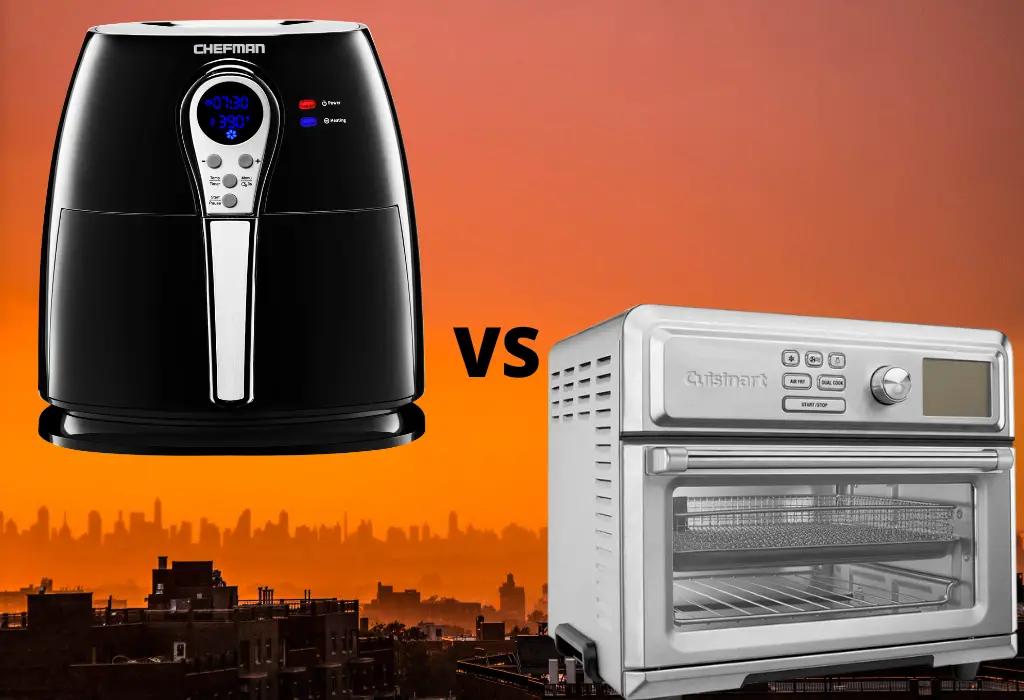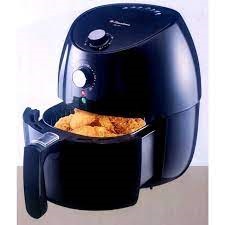In today’s fast-paced world, convenience and efficiency are highly valued in our daily lives. Both appliances offer the ability to quickly heat and cook food, but how do they compare when it comes to their power consumption? Is one more energy-efficient than the other?
In this article, we will delve into the world of kitchen appliances and explore the power consumption of air fryers and microwaves. By understanding the differences in their energy usage, you can make an informed decision on which appliance is best suited for your needs. We will examine the functionality of each appliance, and their energy consumption rates, and discuss the potential impact on your electricity bill. So, let’s take a closer look at the air fryer vs microwave power consumption and discover the most efficient way to cook your meals.
What power does the air fryer consume?
The amount of power an air fryer consumes depends on its size, wattage, and cooking time. On average, a typical air fryer uses between 800-1500 watts of power, which is significantly less compared to a microwave’s 1000-2000 watts. This makes air fryers more energy-efficient and cost-effective in the long run. However, it is important to note that the power consumption also varies depending on the type of food being cooked. Foods that require longer cooking times or higher temperatures will consume more power.
What electrical power does the microwave consume?
The electrical power consumption of a microwave varies depending on the model and size, but on average, it ranges from 1000-2000 watts. This is significantly higher compared to air fryers, making microwaves less energy-efficient. The reason for this is that microwaves use electromagnetic waves to heat and cook food, which requires a larger amount of energy. In contrast, air fryers use a heating element and a fan to circulate hot air, resulting in a more efficient use of electricity. This not only saves energy, but it also reduces electricity costs for the user.
Additionally, the power consumption of a microwave can increase if it is used for extended periods or if multiple cooking functions are used simultaneously.
Does the air fryer consume more power than the microwave?
When it comes to power consumption, the type of appliance plays a significant role. In general, microwaves are known to consume more power than air fryers. This is because microwaves use electromagnetic waves to cook food, which requires a higher amount of energy. On average, microwaves have a power consumption ranging from 1000-2000 watts, while air fryers typically use around 1500 watts. However, it is essential to note that the actual power consumption may vary among different models and brands. So, it is always recommended to check the specific wattage of the appliance before making a decision.
Moreover, cooking time also plays a crucial role in power consumption. Microwaves have a shorter cooking time compared to air fryers, which means they consume less power in the long run. On the other hand, air fryers may take a longer time to cook food, but they use less power throughout the cooking process. This makes them a more energy-efficient option in the long term, resulting in lower electricity bills. So, while microwaves may have a higher wattage, the cooking time and overall energy consumption should also be taken into consideration when comparing the power usage of these two appliances.
How to manage power usage when using the air fryer or microwave to save on electricity
To effectively manage power usage when using the air fryer or microwave, it is important to understand the difference in their power consumption and make conscious decisions while cooking.
1. Proper meal planning:
Firstly, it is recommended to plan your meals ahead of time and batch cook using the air fryer or microwave. This will not only save time but also reduce the frequency of using these appliances, ultimately leading to lower power usage.
2. Do not pre-heat for long periods:
Additionally, avoid preheating the air fryer or microwave for extended periods and only use the necessary cooking time to avoid unnecessary energy consumption.
3. Adjusting the power setting:
Furthermore, adjusting the power settings on your microwave can also help in saving electricity. Lower power settings will use less energy and may take longer to cook, but it will still get the job done without using excessive power.
4. Size of cookware:
Similarly, using the appropriate size of cookware for your air fryer or microwave can also make a difference in power usage. Using larger cookware than necessary will require more power to evenly cook the food, while using smaller cookware may result in uneven cooking and the need to reheat, using more power in the process.
Conclusion
In conclusion, while both the air fryer and the microwave have their advantages and disadvantages, it is clear that the air fryer has a more efficient power consumption. With its ability to cook food faster and with less energy, it is a more eco-friendly option for those looking to reduce their energy usage. However, the choice ultimately depends on personal preference and cooking needs.
- Air Fryer Vs Microwave Power Consumption - January 4, 2024
- Can You Put Tupperware In The Air Fryer? - December 2, 2023
- Cosori Airfryer Vs Instant Pot - November 11, 2023



